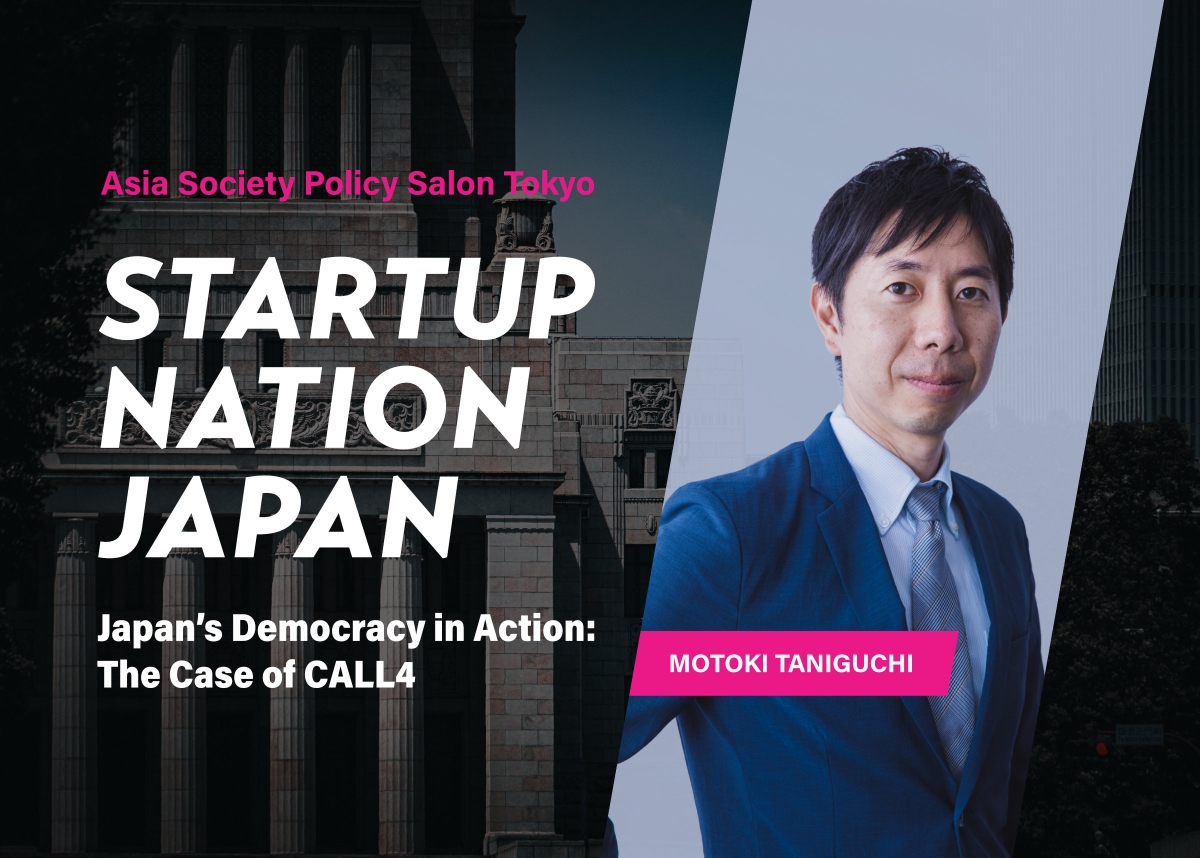Japan’s Democracy in Action: The Case of CALL4
VIEW EVENT DETAILSStartup Nation Japan

Transforming Japan’s Justice System through Public Proceedings, Grassroots Funding, and a Human Rights Focus
Japan’s democracy and constitution are grounded in the promise of civil liberties and the guarantee of proactive checks and balances between individual rights and state power. Of all primary estates—Executive, Administrative, Judiciary, and Media—the judiciary is probably the least understood; and public discourse is relatively muted. Although empowered by the constitution, neither the people in general nor the legal profession, in particular, appear keen on confidently using the legal system to push for the evolution of the law: only 11 times in post-war history has the Supreme Court ruled that a law is unconstitutional. Clearly, society is evolving and whether it is human rights, marriage equality, detention practices, reproduction health rights, custody laws, or overseas citizens' voting rights, the evolution of the legal system is a necessary condition for the future of a healthy democracy.
Join us for a session with one of Japan’s leading advocates and practitioners for civil liberties and a more open public discourse on the role of the judiciary. Motoki Taniguchi was inspired by American Civil Liberties Union (ACLU) actions to defend civil rights during his Fulbright Scholarship séjour in the U.S. Upon returning to Japan, he founded innovative civil rights crowdfunding platform CALL4 as well as a legal practice to defend and speak up for civil rights in Japan. He recently received a grant from the Soros Foundation to further enhance his vision and impact. Join us for an interactive session offering insights into a little-discussed reality of Japan.
Event and Registration Details
- This event will be conducted in in-person and online, and registration is required.
- In-person participation is for members and guests only. Please pay your fee by credit card or at the door.
- Online participation is open to the public and free.
Speaker Bio
Motoki Taniguchi is a human rights lawyer and activist who is most known for, among other notable cases, winning the Supreme Court’s 11th unconstitutional ruling on law in Japan's history over voting rights. With a practical experience in the human rights field representing marginalized people, his career expanded into a social start-up, “CALL4” which is the digital platform to use collective power to transform Japan’s Justice system. His on-the-ground sense and skills cultivated as a litigator for 17 years along with his ability to envision social change from an international perspective, learned at the University of Michigan Graduate School of Social Work as a Fulbright Scholar, are attracting attention from various fields as having a significant social impact.
Event Details
(In-person: Members & guests only / Online: Open to the public)
International House of Japan B1